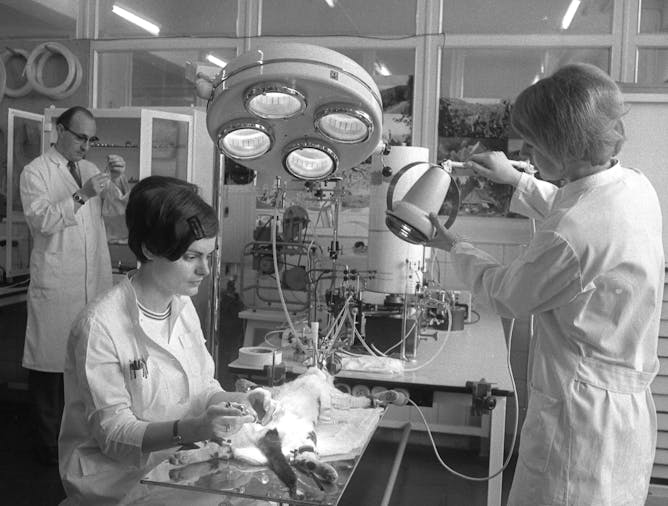|
The Criminal Code is the legislation that codifies most criminal offences in Canada. Today in The Conversation Canada, Doug Ferguson and Jason Voss of Western University look at updates to the Criminal Code now being considered – including a significant change that will have an unintended consequence of preventing law students from representing those accused of crimes. Currently, many people who can’t afford lawyers use student law school clinics. The changes will leave vulnerable people to fend for themselves when navigating the criminal justice system.
Joel Lexchin of the University of Toronto, who writes regularly on issues relating to Big Pharma, looks back at the 1960s thalidomide tragedy – and why there are still unanswered questions that need to be addressed to prevent future pharmaceutical catastrophes.
The next Olympics won’t happen until 2020, but the issue of drugs in Olympic sports is a story that never ends. Norm O'Reilly of the University of Guelph explains the recent controversial decision by the World Anti-Doping Agency to lift its sanctions on Russia and why athletes are outraged.
And finally…the recent Toronto mayoralty election went exactly as predicted when incumbent John Tory won a comfortable victory. But Brian Budd of University of Guelph looks at a little-reported story from election night -- the third-place showing of Faith Goldy, a candidate who has espoused white supremacist views. What does that say about the state of politics in Canada?
Regards,
|

Justice Minister Jody Wilson-Raybould holds a press conference in the foyer of the House of Commons on Parliament Hill in Ottawa on Thursday, March 29, 2018, regarding the criminal justice system.
THE CANADIAN PRESS/Sean Kilpatrick
Doug Ferguson, Western University; Jason H. Voss, Western University
Bill C-75 was introduced to the House as a way to fix issues with the criminal justice system. However, an unintended consequence is that low-income people will lose access to law school clinics.
|

An animal experiment in a laboratory of the pharmaceutical company “Chemie Gruenenthal,” which manufactured the drug Thalidomide, in West Germany in 1969. Thalidomide was prescribed by doctors as a mild sleeping pill and for relief of morning sickness but caused the miscarriage and birth of thousands of children with severe malformations globally.
(AP Photo/File)
Joel Lexchin, University of Toronto
A new book, 'The Thalidomide Catastrophe,' raises questions about the conduct of corporations involved. It is the duty of governments to find out the answers.
|

A and B sample bottles from a human urine doping test. The World Anti-Doping Agency (WADA) has set off a controversy by allowing Russia to test its own athletes.
(AP Photo/Matt Dunham, File)
Norm O'Reilly, University of Guelph
The decision by the World Anti-Doping Agency to lift its ban on Russia's drug testing has set off another controversy about whether there will ever be a level playing field in the world of sports.
|

More than 25,000 people voted for Faith Goldy for mayor of Toronto. What does it mean?
(Facebook)
Brian Budd, University of Guelph
Faith Goldy's third-place finish in the Toronto mayoralty race should not be dismissed. We must be watchful of the potential lessons that other far-right politicians may draw from her campaign.
|
Politics
|
-
Joseph Nevins, Vassar College
Violence, poverty and oppression in Honduras are causing thousands to flee to the US. Will the next president own the role of US foreign policy in creating these problems?
|
|
Arts
|
-
Emma Quilty, University of Newcastle
The new Sabrina joins a host of other witches in pop culture, a witch revival that reflects more radical feminist politics.
|
|
Culture + Society
|
-
Chris Paterson, University of Leeds
The death of the Saudi columnist shows the hazards faced by journalists – especially if the US doesn't like what they do.
|
|